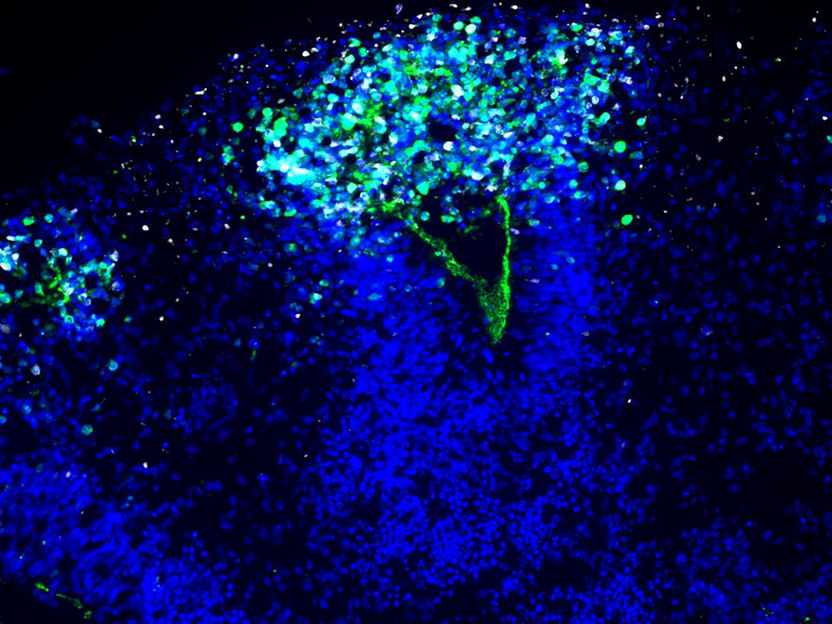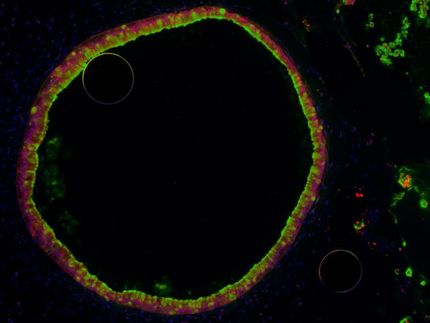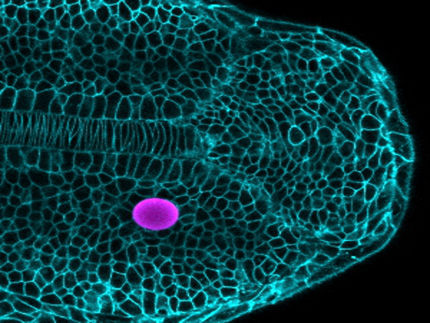New research shows versatility of amniotic fluid stem cells
For the first time, scientists have demonstrated that stem cells found in amniotic fluid meet an important test of potential to become specialized cell types, which suggests they may be useful for treating a wider array of diseases and conditions than scientists originally thought. Reporting in Oncogene, the research teams of Anthony Atala, M.D., director of the Wake Forest Institute for regenerative medicine, and Markus Hengstschläger, Ph.D., from the Medical University of Vienna, have shown that these amnion stem cells can form three-dimensional aggregates of cells known as embryoid bodies (EBs). It is believed that cells at this stage of development can be directed to become virtually any cell in the human body.
"This finding suggests that the amnion cells have greater potential than we originally thought and may be able to form many cell types," said Atala. "This could expand the number for diseases and conditions that they may be helpful for."
Atala's team is currently evaluating the cells for their potential to treat diabetes and kidney disease. They were the first to report success (Nature Biotechnology, Jan. 2007) in isolating stem cells from placenta and amniotic fluid, which surrounds the developing fetus. The current research is one of several projects designed to determine the potential of this new type of stem cell. For the study, scientists generated two additional lines of stem cells from amniotic fluid using the same protocol developed by Atala's lab. They then investigated the incidence of EB formation in all three lines.
"Performing many independent experiments using different approaches, we demonstrate in the report that human amnion stem cells … can indeed form embryoid bodies," write the researchers in Oncogene. "Amnion cells are on the way to become an important source for both basic science and regenerative medicine."
In addition to the finding about EBs, the scientists identified a protein found inside cells (mTOR) as the regulator of EB formation. Hengstschläger, whose team was the first to provide evidence for the existence of stem cells in amniotic fluid, said that this finding may allow for new insights into the molecular mechanism of EB formation. He said the cells may be a useful source for generating disease-specific stem cell lines for studying the differentiation process to determine what goes wrong in genetic diseases.
"These stem cells allow for studying the effects of mutations causing human genetic diseases on specific cell differentiation processes," he said.
Other potential advantages of the cells are that they can be grown in large quantities and are readily available during gestation and at the time of birth. "Whether these cells are as versatile as embryonic stem cells remains to be determined," said Atala, "but the current finding is certainly encouraging."
Atala stopped short of calling the cells pluripotent, which means the ability to form many cell types. He said while the cells meet some of the characteristics of pluripotency, such as versatility, they do not form tumors when implanted in animals, which is also considered a characteristic. The fact that the amnion cells are less likely to form tumors may be one advantage that they have over embryonic stem cells in their potential for clinical use.
Most read news
Topics
Organizations
Other news from the department science

Get the life science industry in your inbox
By submitting this form you agree that LUMITOS AG will send you the newsletter(s) selected above by email. Your data will not be passed on to third parties. Your data will be stored and processed in accordance with our data protection regulations. LUMITOS may contact you by email for the purpose of advertising or market and opinion surveys. You can revoke your consent at any time without giving reasons to LUMITOS AG, Ernst-Augustin-Str. 2, 12489 Berlin, Germany or by e-mail at revoke@lumitos.com with effect for the future. In addition, each email contains a link to unsubscribe from the corresponding newsletter.
Most read news
More news from our other portals
Last viewed contents

Milli-Q® IX 7003/05/10/15 | Ultrapure water systems | Merck

Studying herpes encephalitis with mini-brains - “This model is now much closer to reality for the herpes virus than what has been used previously”























































